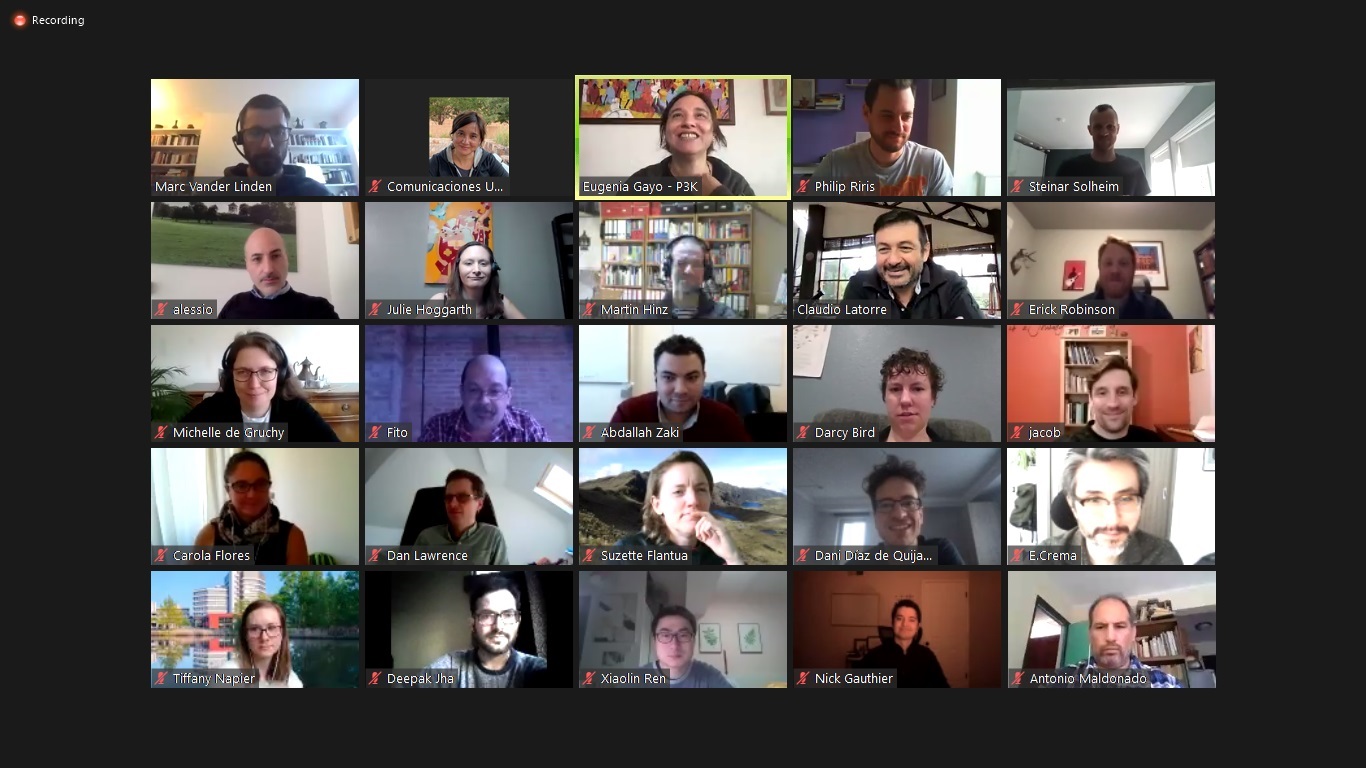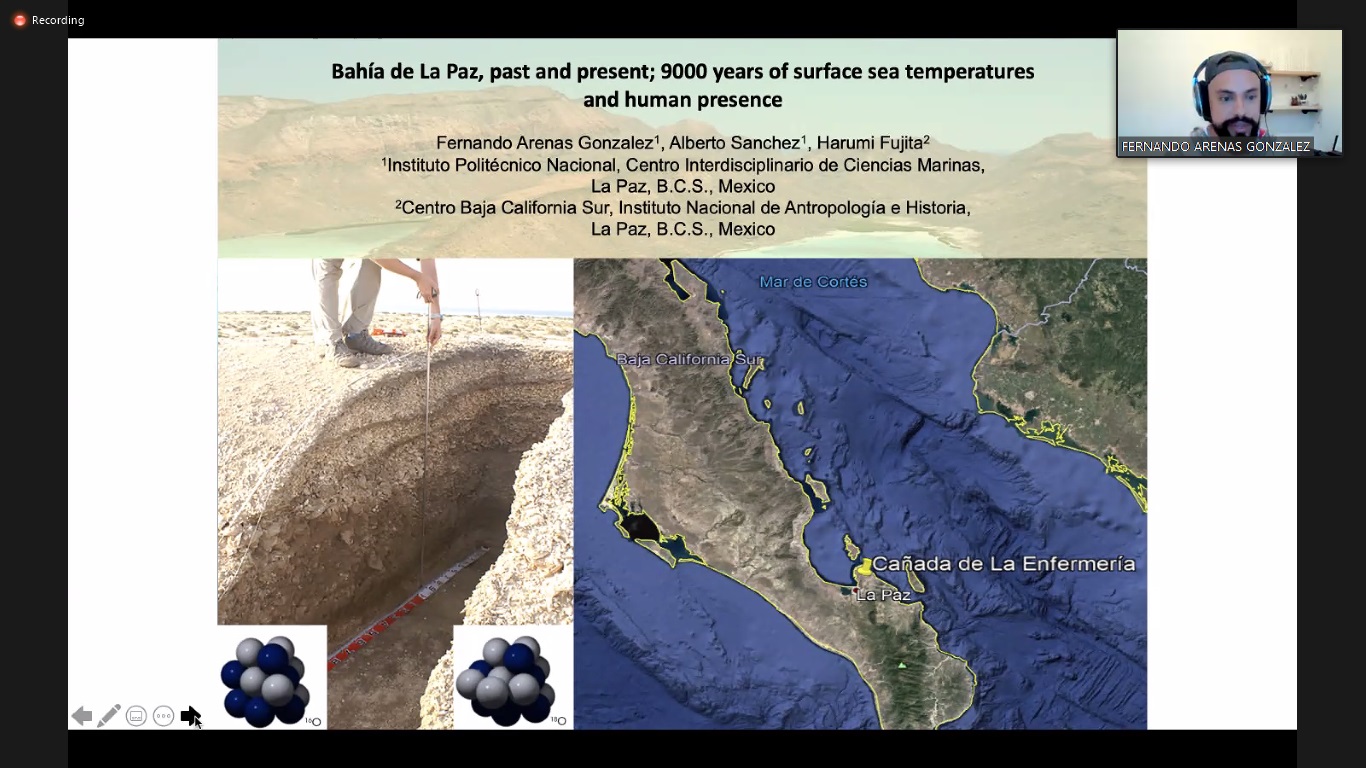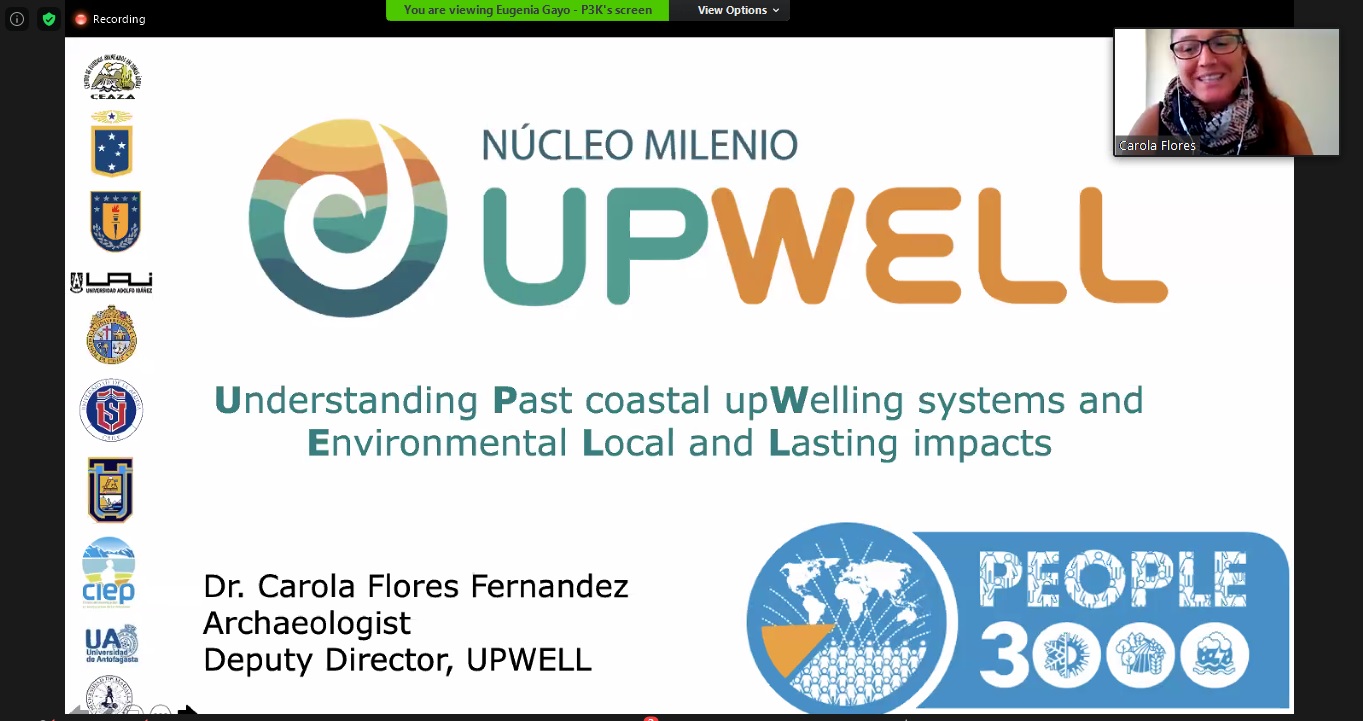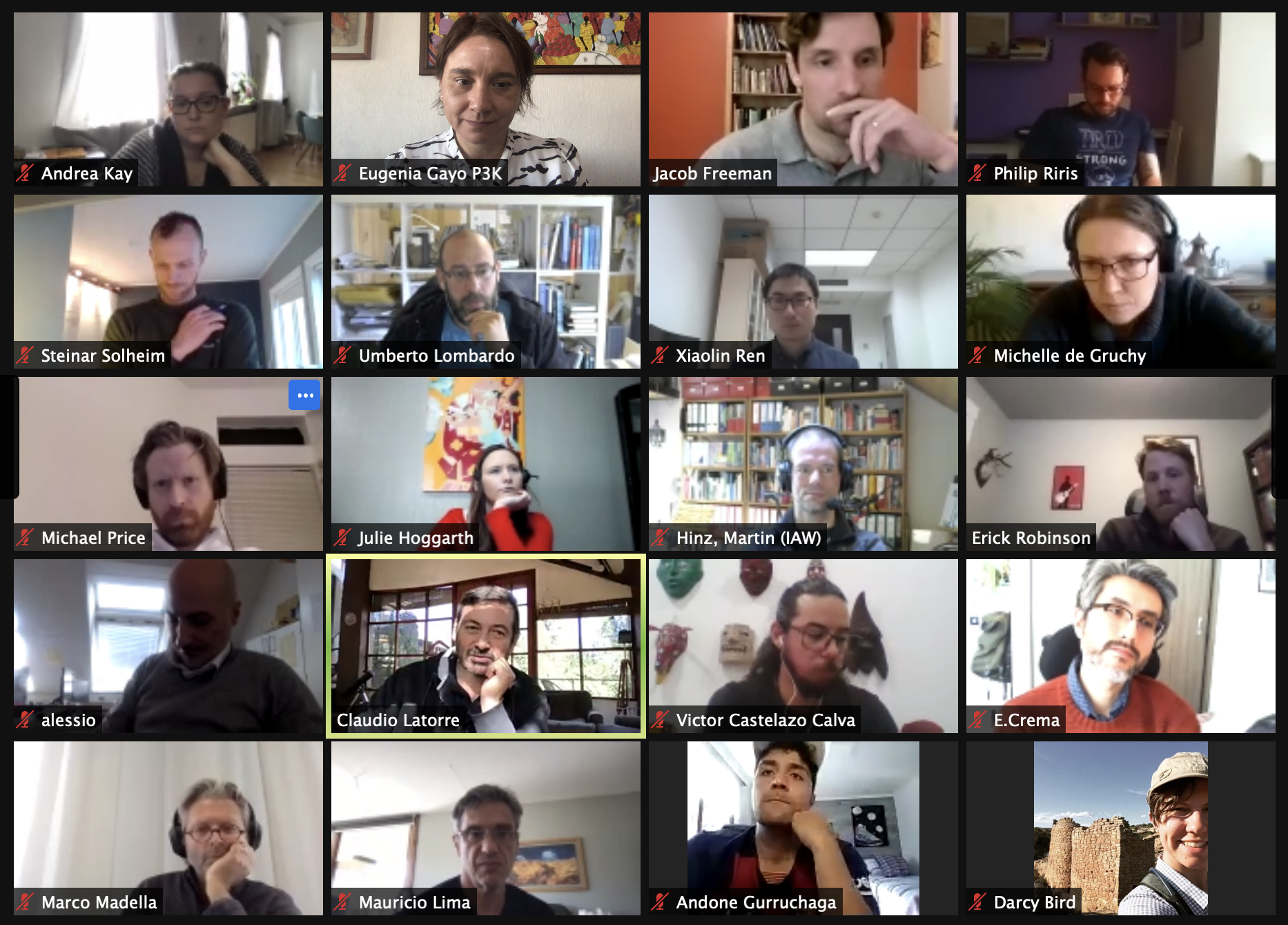
 uc.cl
uc.cl
The PalEOclimate and the PeopLing of the Earth (PEOPLE 3000) working group will hold the online workshop "Understanding long-term human-environment feedback loops through the integration of archaeology, paleoclimate and ecological models" from 25-26 March 2021.
The workshop will run for three hours each day, from 11:00-14:00 UTC.
Logistics
A follow-up in-person meeting is planned to be held in Arica, Chile, in September or October 2021. More information will be provided as soon as possible.
This meeting was originally planned for May 2020 then rescheduled to 31 August to 5 September 2020 due to coronavirus disruptions.
It is open not only for PEOPLE 3000 members, but also other researchers who are interested to participate and collaborate with data and case studies that answer the main question of this workshop.
Description
The PEOPLE 3000 working group (WG) focuses on integrating archaeological and paleoecological data into a mathematical framework for understanding how co-evolving human societies and ecosystems successfully cope with the interrelated forces of population growth, increasing social complexity and climate change, and why some societies subsequently collapse and/or reorganize.
This workshop builds from our three previous PAGES co-funded workshops, "The Coevolution of Climate, Population, and Food Systems in North and South America" (November 2016), "Social Complexity and Climate Change, and Why Societies Fail to Cope with these Interrelated Forces and Collapse/Reorganize" (May 2018), and "Human Paleo-biogeography and the Synchrony of Social-Ecological Systems on Earth" (May 2019).
This workshop will integrate paleoecological datasets with global radiocarbon datasets under a common mathematical ecological theory and develop synergies with PAGES' LandCover6k WG.
We have now amassed a global database of 130,000 radiocarbon ages, and our workshop will integrate these data with paleoenvironmental datasets produced/refined by the PEOPLE 3000 project.
By integrating these datasets, we will ask: Does human population size and/or rates of change better correlate with climate driven changes in ecosystem structure, diversity or functionality? This question grounds our WG goal to focus beyond searching for simple correlations between human population change and climate change towards explanations based on climate-ecosystem-population feedback processes.
Such a perspective is key for comparing long-term growth rates for past populations from North and South America, Northern Africa, East Asia, and Europe and relate such trends with anthropogenic land-use changes.
This workshop builds upon the recent article from the LandCover6k working group "Development and testing of scenarios for implementing Holocene LULC in Earth System Model Experiments" (Harrison et al. 2020), and papers from the PEOPLE 3000 working group, such as "Geohistorical records of the Anthropocene in Chile" (Gayo et al. 2019), "Long-term records partly support the tents of climate-smart agriculture" (Freeman et al. in prep), and "The Optimal Species Richness Environments for Human Populations" (Freeman et al. accepted pending minor revisions).
All of these outputs highlight how our working group is producing deliverables that bridge archaeological and paleoenvironmental data to develop an interdisciplinary perspective – theoretical and methodological – on the long-term feedback loops generated by the interactions across social and natural systems.
Program
Day 1
11:00: Putting population dynamics hypothesis to the test using ecological models (Mauricio Lima)
11:15: Data for changes in sizes and/or growth rates (Darcy Bird)
11:30: Integrating other types of archaeological data (Mike Price and Julie Hoggard)
11:45: How to use archaeological 14C data for other scientific communities: a land-use/climate example (Marc Vander Linden)
12:00: Questions
12:15: Break
12:20: Past human impacts on the vegetation trajectory and implications for paleoclimate reconstructions (Konrad Gajawsi)
12:35: Climate model downscaling and mathematical/agent-based modeling (Nicolas Gauthier)
12:50: Estimating resilence in prehistoric societies (Jacob Freeman)
13:05: Questions
13:15: Break
13:30: Short 3-min presentations for virtual flash posters
- Late Quaternary ancient river record of precipitation in the eastern Sahara and link with human occupation and migration, Abdalla Bakri
- Exploring models for the Maya collapse, Victor Castellazo
- New radiocarbon database for the archaeological traditions of the central Andes, Andoni Inaki
- Demography, vegetation dynamics, and social resilience in the prehistory of the Central Plains of China, Xiaolin Ren
- Booms and Busts in Human Population Dynamics during the Late Holocene of Central Western Argentina Correlate With Maize Productivity, Fito Gil
- Climate, Landscape, Settlement and Society in Middle-Late Holocene Southwest Asia, Michelle de Gruchy
- Sub-centennial scale human-environment dynamics in the central Atacama Desert (22°S) during the late Holocene, Antonio Maldonado
- Bahía de La Paz, past and present; 9000 years of surface sea temperatures and human presence, Fernando Arenas
- The UPWELL project, Carola Flores
14:00: Questions for virtual flash posters
14:10: End of day 1
Day 2
11:00: Welcome
11:05-12:35: Breakout session 1: The future of the PEOPLE 3000 working group (Jacob Freeman and Eugenia Gayo)
11:05-12:35: Breakout sesion 2: Mathemathical interphase (Erick Robinson and Mauricio Lima).
12:35: Break
12:40: Final comments (Claudio Latorre)
13:10: End of day 2
Workshop goals
1. Develop a fully usable global archaeological radiocarbon database.
2. Generate a mathematical interphase using theoretical ecology models that integrate the global archaeological radiocarbon dataset with paleoenvironmental data (climate, land-use, biodiversity).
3. Write a review paper on "Trends in global human population growth and land-use during the Holocene".
Registration
Registration closes 20 March 2021.
To register, email Eugenia Gayo (different email address: egayoher bio.puc.cl (egayoher[at]bio[dot]puc[dot]cl)) using the email subject line "P3K workshop registration".
bio.puc.cl (egayoher[at]bio[dot]puc[dot]cl)) using the email subject line "P3K workshop registration".
Background
This workshop will focus on integrating data and approaches developed in the synergy with the LandCover6k working group of PAGES as well as with different ECRs who have recently joined the PEOPLE 3000 project. We will be able to contextualize our fresh methodological and theoretical frameworks at different spatial scales (from supra-regional to global scale). Given that this is the last year of our WG before synthesis, the workshop will provide the necessary opportunities to channel efforts into summary products as well as provide new opportunities for continuing our collaborative efforts.
Further information
Contact workshop organizer Eugenia Gayo, CAPES-UC: emgayo uc.cl (emgayo[at]uc[dot]cl)
uc.cl (emgayo[at]uc[dot]cl)
Find out more about the in-person workshop in Chile in September or October 2021.
Post-meeting material



